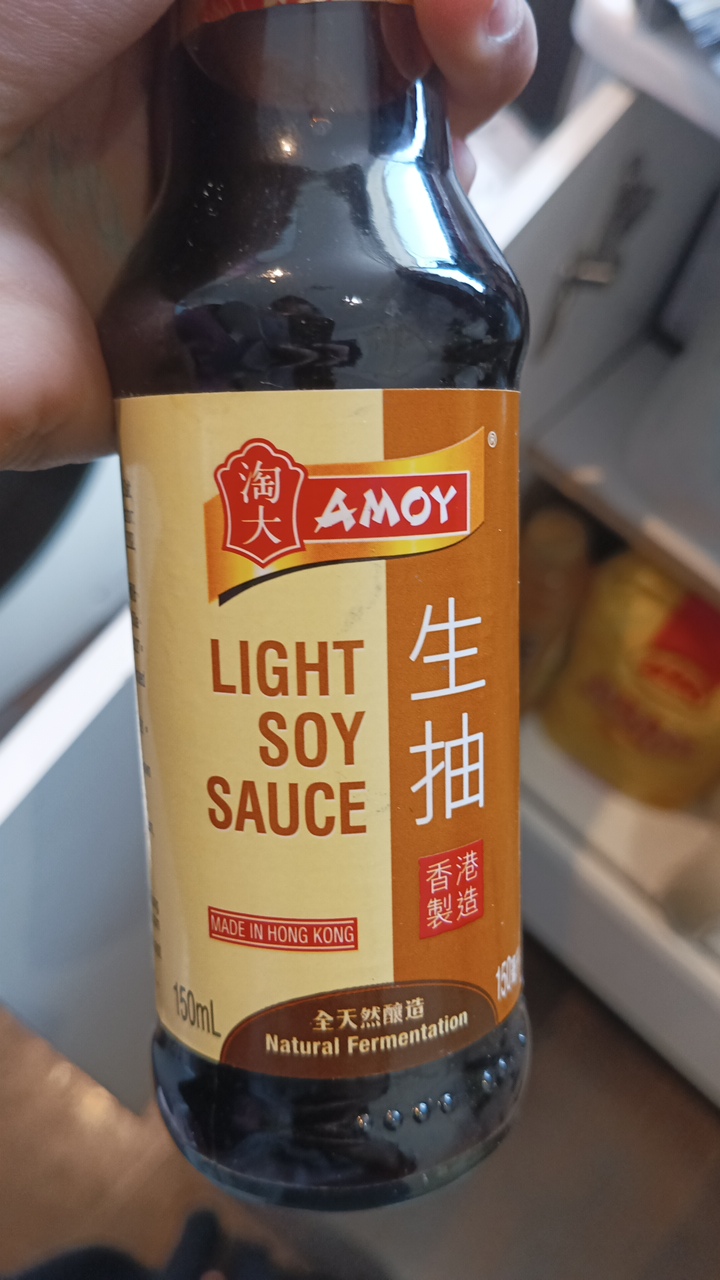
Barcode: 5010928254015
unknown
DOUBTFUL
📝 Reason: Soy sauce’s Halal status is doubtful due to potential alcohol content or processing methods. Without explicit Halal certification, it is advised to consider it as doubtful. Islamic dietary laws emphasize the importance of clear Halal certification for products with doubtful ingredients (Quran 5:3).
📄 Certificates: None
Ingredients:
Details
Understanding the Halal Status of Soy Sauce
Soy sauce is a popular condiment used across various cuisines, particularly in Asian dishes. However, when it comes to the dietary restrictions of the Muslim community, there’s a significant question: is soy sauce Halal? Let’s delve deeper into the Halal status of soy sauce and explore the factors contributing to its classification.
Halal Status: Doubtful
The current status of soy sauce is marked as ‘doubtful.’ This classification primarily stems from the potential presence of alcohol in the product, whether from the ingredients used or the processing methods applied. Without explicit Halal certification, it is advised to consider it as doubtful. According to Islamic dietary laws, as emphasized in the Quran (5:3), clear Halal certification is critical for products with dubious status.
Ingredients Breakdown
To understand why soy sauce carries a doubtful Halal status, let’s analyze its primary ingredient:
Soy Sauce
Soy sauce itself may typically contain alcohol or be processed with alcohol, which directly influences its Halal standing. The concern arises particularly in the fermentation process where alcohol could be produced. As described in the ingredient details, soy sauce might hold E-numbers although, in this case, it’s noted that applicable E-codes are not provided.
E-numbers and Their Status
In our current focus, there’s only one main ingredient:
- E-Code: Not applicable
- Name: Soy Sauce
- Status: Doubtful
- Details: Soy sauce may contain alcohol or be processed with alcohol, making its Halal status doubtful without specific Halal certification.
The details surrounding soy sauce further illustrate the complicated balance between culinary traditions and dietary restrictions in Islam. This incompatibility is due to potential alcohol content and the absence of Halal certification from reputable certifying bodies.
The Importance of Halal Certification
When discussing products that may be doubtful, it is essential to highlight the significance of having clear Halal certification. In a world where many food items hailed as ‘Halal’ can often mislead consumers, a certificate from a recognized Halal authority serves as the only assurance that the product adheres to the rules and regulations set forth in Islamic teachings. For soy sauce specifically, the lack of certification exacerbates the uncertainty surrounding its consumption.
Consumer Guidance
For Muslim consumers, it’s vital to remain educated about such ambiguities regarding ingredients like soy sauce. It is often recommended to seek alternatives explicitly marked with Halal certification or to contact manufacturers for clarification on their product’s ingredient sourcing and processing practices.
In summary, due to the uncertainty surrounding its alcohol content and processing and the lack of Halal certification, soy sauce currently has a doubtful classification for Halal consumption. It is always best to seek clear, certified products to ensure compliance with dietary laws.
Conclusion
In conclusion, while soy sauce is a beloved ingredient in many dishes, its Halal status remains uncertain. As consumers, especially within the Muslim community, it is crucial to stay informed and make dietary choices aligned with one’s beliefs and values. For those unsure about soy sauce, opting for products with explicit Halal certifications could offer peace of mind.

